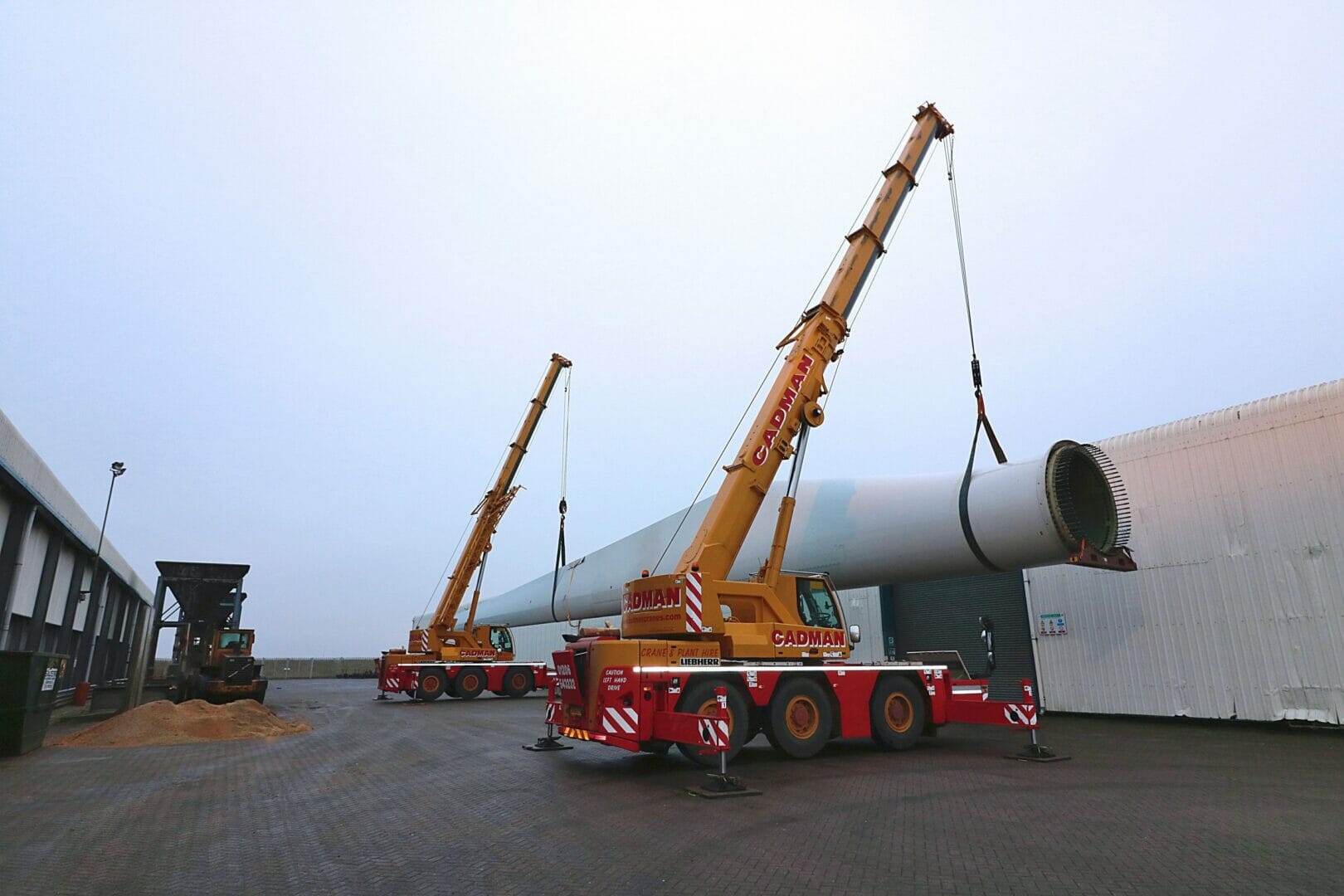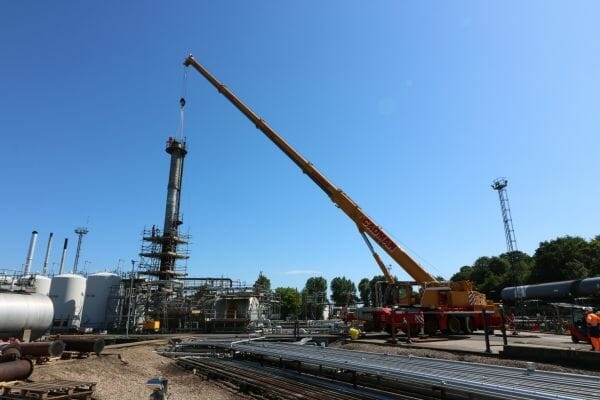
Lifting jobs come in all shapes and sizes. You might be running a big construction job, you might need a heavy piece of plant equipment delivering and installing, you might have a caravan or a boat to move.
Whatever the reason, you know you need a crane.
But when you look into your options, you are confronted with two choices – mobile crane hire, or contract lift services.
What’s the difference between the two, and which is best for you? Mobile crane hire specialists Cadman Cranes run us through everything you need to know before you make your decision.
Legal Background
The distinction drawn between crane hire and contract lift services has its roots in health and safety regulations and dates back to the introduction of British Standard (BS) 7121, otherwise known as ‘the Safe Crane Standard’, in 1989.
With the involvement of the CPA’s Crane Interest Group, BS 7121 outlined the concept of contract lifting services, with a new set of service conditions that went above and beyond the standards required for ordinary crane hire.
While BS 7121 in itself isn’t legally binding, its standing as the industry best practice benchmark for crane safety was strengthened in 1998 when it was specifically referenced in the Lifting Operations & Lifting Equipment Regulations (LOLER).
Taking its lead from BS 7121, LOLER guidance also distinguishes between crane hire and contract lifting, effectively putting the differences in compliance responsibilities on a legal footing.
Differences Between Crane Hire and Contract Lifting
In practice, depending on whether you choose crane hire or contract lifting, ultimate responsibility for ensuring the safety of a lift falls to a different party, either the end-user or hire firm.
These responsibilities include carrying out risk assessments, producing method statements and ensuring that the lift is planned in a safe, secure way using appropriate equipment. Similarly, legal responsibility for any accidents, injuries or damage incurred during a lift falls on a different party, too.
With crane hire, this burden falls on the hirer or end user. In effect, you hire a machine and a qualified driver – how they are used and managed to ensure a safe, satisfactory outcome is up to you.
With a contract lift, the roles are reversed. The hire company supplies the crane and driver, but they also take charge of supplying the ‘appointed person’ who is responsible for planning, organising and supervising the lift in accordance with BS 7121 and LOLER.
In effect, then, a contract lift is about project managing the entire process, not just supplying a crane and driver. This includes organising slinging and signalling, taking on the burden of legal responsibility for damage or injury, and also making sure appropriate insurance is in place to cover claims should there be any damage to property, goods or people.

The Cost Factor
Because of the additional work and responsibility the hire company takes on with a contract hire, not least the insurance costs needed to cover machinery, goods and personnel on site, contract hire services cost more upfront in direct comparison with straightforward crane hire.
There are, however, a range of other supplementary costs that need to be factored in. If you hire a crane, for example, you will need to pay for Hired In Plant Insurance. If you hire in plant on a regular basis and have a long-term insurance policy, this might not be much of an issue. But for one-off occasional cover, Hired In Plant Insurance can be expensive.
Personnel is an even bigger cost consideration. Unless you use cranes on a regular basis, you are unlikely to employ a qualified Lift Supervisor, or have anyone trained up for the role of Appointed Person as per BS 7121 and LOLER requirements. The extra cost of a contract lift service includes qualified people to take on these roles and so becomes a necessary expense.
But even if you use cranes on a reasonably regular basis, contract lift may work out cheaper than employing specialist personnel for these roles directly.
Deciding on the Right Service
Many people who only require occasional or one-off lifting services balk at the extra up-front costs of a contract lift. But what you are paying for is the specialist expertise required to carry out a lift safely and in full compliance with regulations.
Crane hire is only really suitable for organisations that need to lift on a regular basis and have the infrastructure and qualified personnel available within the company to plan and supervise each job. For these customers, crane hire offers greater flexibility than buying cranes outright.
For everyone else, contract lift services are the safest option. Contracting lifting provides a complete lifting service with peace of mind that the job will be managed by professional specialists in full accordance with regulations.
